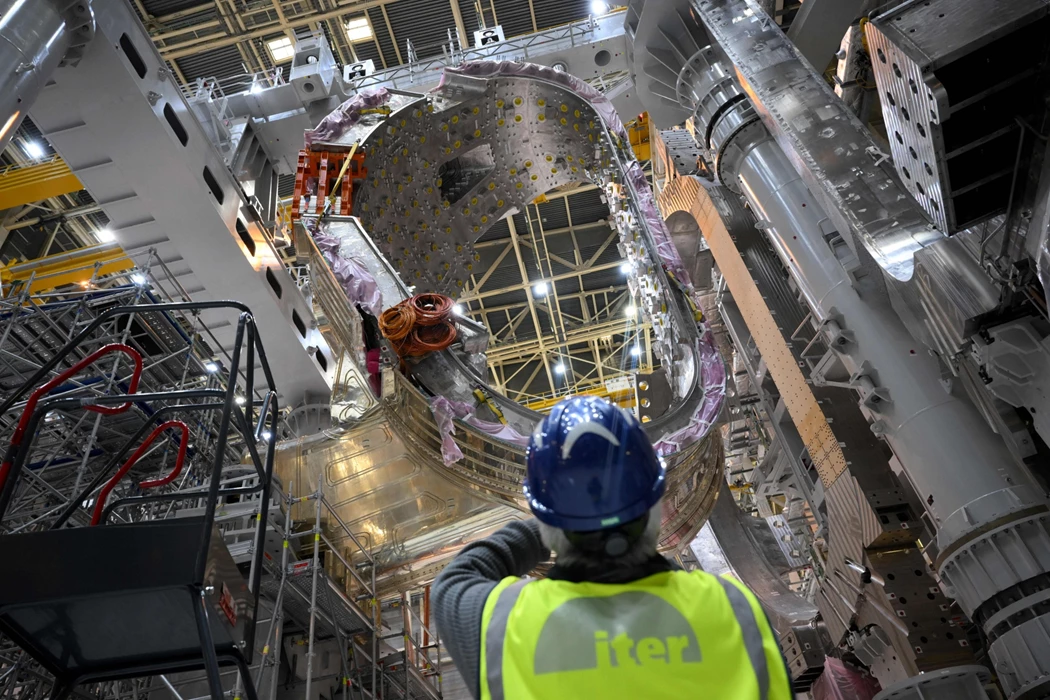Costs Jump at World’s Biggest Nuclear-Fusion Project With Delays
(Bloomberg) -- Testing at the world’s biggest fusion-energy experiment will be delayed by years with billions of dollars in additional costs expected, dealing a fresh blow to an already eye-wateringly expensive project.
The International Thermonuclear Experimental Reactor, or ITER, has been plagued by supply-chain problems that began during the Covid-19 pandemic. The dizzyingly complex machine is being built by a consortium of 32 countries piecing together more than 1 million parts at a construction site in southern France.
The delays cast more doubt over whether fusion, with its promise of limitless clean energy, will arrive in time to combat the worst effects of climate change this century and help meet the growing demand for power globally.
“Certainly, the delay of ITER is not going in the right direction,” said Pietro Barabaschi ITER’s director general, during a briefing on Wednesday. “In terms of the impact of nuclear fusion on the problems humanity faces now, we should not wait for nuclear fusion to resolve them. This is not prudent.”
It’s the second time in eight years that ITER has had to revise its budget and time line. Full testing of the reactor now won’t begin until 2039, a four-year delay from an earlier estimate of 2035.
ITER was originally scheduled to cost about $5 billion and begin testing in 2020. The budget has ballooned past $22 billion, with no date set for trials. The scale of additional funds needed is still being calculated and is expected to be presented later this year, though Barabaschi said it would amount to around €5 billion (€5.4 billion).

ITER’s delay means the project could be overtaken by privately-funded trials run by Commonwealth Fusion Systems LLC and Tokamak Energy Ltd., which use smaller versions of the same reactor and expect to begin testing prototypes this decade. Fusion is the process that fuels the sun and theoretically could generate limitless clean energy.
Barabaschi said that he was “very skeptical” that any startups promising commercial operation by 2040 would hit that time line.
“Even if we were to have today thermonuclear fusion proven, I don’t believe we would be in a position to have it commercially deployed by 2040,” he said. “We have to solve a number of other technical problems to make it commercially viable.”
©2024 Bloomberg L.P.





